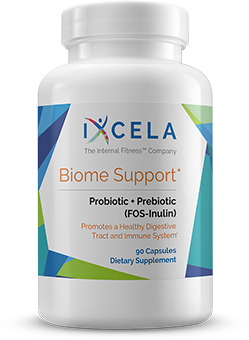-
Li Y, et al (2022) Co-administering yeast polypeptide and the probiotic, Lacticaseibacillus casei Zhang, significantly improves exercise performance. J Functional Foods 95:105161 doi.org/10.1016/j.jff.2022.105161
-
Miles MP. Probiotics in sports nutrition, chapter 14, “Probiotics. Advanced Food and Health applications” Adriano Brandelli (ed.) Elsevier (2022) 277-295. doi.org/10.1016/B978-0-85170-100024-5
-
Sales KM & Reimer RA (2022) Unlocking a novel determinant of athletic performance: The role of the gut microbiota, short-chain fatty acids, and “biotics” in exercise. J Sport and Health Sci. doi.org/10.1016/j.jshs.2022.09.002
-
Severo JS et al (2022) Probiotics in sports and physical exercise, chapter 14, “Probiotics for Human Nutrition in Health and Disease” de Souza, EL, et al (eds.) Elsevier (2022) 345-372. doi.org/10.1016/B978-0-323-89908-6.00023-6
-
Harnett JE, et al (2021) Probiotic supplement elicit favourable changes in muscle soreness and sleep quality in rugby players. J Sci and Med in Sport 24:195-199 doi.org/10.1016/j.sams.2020.08.005
-
Lee M, et al (2021) Effectiveness of human-origin Lactobacillus plantarum PL-02 in improving muscle mass, exercise performance and anti-fatigue. Scientific Reports (2021) 11:19469. doi.org/10.1038/s41598-021-98958-x
-
Lee M, et al (2021) Lactobacillus plantarum TWK10 improve muscle mass and functional performance in frail older adults: a randomized, double-blind clinical trial. Microorganisms 9:1466. doi.org/10.3390/microorganisms9071466
-
Tavakoly R, et al (2021) Effect of probiotic consumption on immune response in athletes: a meta-analysis. Int J Sports Med 42:769-781. doi.org/10.1055/a-1463-3303
-
Przewlocka K et al (2020) Gut-muscle axis exists and may affect skeletal muscle adaptation to training. Nutrients (2020) 12:1451. doi.org/10.3390/nu12051451
-
Antoni C, et al (2019) Metabolomics and proteomics as tools to advance the understanding of exercise responses: The emerging role of gut microbiota in athlete health and performance. Chapter 19, “Sports, Exercise, and Nutritional Genomics: Current Status and Future Directions” Barh D and Ahmetov I (eds). Elsevier (2019) 433-459. doi.org/10.1016/B978-0-12-816193-7.00019-1
-
Maia LP, et al (2019) Effects of probiotic therapy on serum inflammatory markers: a systemic review and meta-analysis. J Functional Foods (2019) 54:466-478. doi.org/10.1016/j.jff.2019.01.051
-
Nishihira J (2019) The role of probiotics in sports: Application of probiotics to endurance exercise. chapter 36, “Nutrition and Enhanced Sports Performance, Second Edition” Bagchi D (ed). Elsevier (2019) 423-428. doi.org/10.1016/B978-0-12-813922-6.00036-9
-
Pumpa K ,et al (2019) A novel role of probiotics in improving host defence of elite rugby union athlete: a double blind randomized controlled trial. J Sci and Med in Sport 22 (2019):876-881. doi.org/10.1016/jsams.2019.03.013
-
Sawada D, et al (2019) Daily intake of Lactobacillus gasseri CP2305 relieves fatigue and stress related symptoms in male university Ekiden runners: a double-blind, randomized, and placebo-controlled clinical trial. J Functional Foods. doi.org/10.1016/j.jff.2019.04.022
-
Mach N & Fuster-Botella D (2017) Endurance exercise and gut microbiota: a review. J Sports and Health Sci 6:179-197. doi.org/10.1016/j.jshs.2016.05.001
-
Haywood BA, et al (2014) Probiotic supplementation reduces the duration and incidence of infections but not severity in elite rugby union player. J Sci and Med in Sports 17:356-360. doi.org/10.1016/j.jsams.2013.08.004
-
Vitett L, et al (2013) The gastrointestinal microbiome and musculoskeletal diseases: a beneficial role for probiotics and prebiotics. Pathogens 2:606-626. doi:10.3390/pathogens2040606
